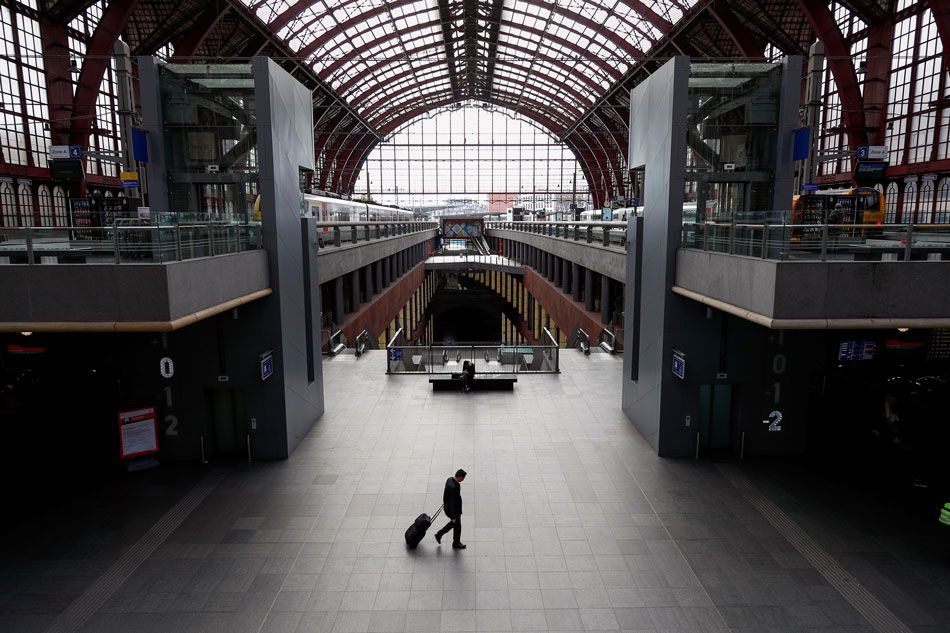'It is not enough': Health expert wants Belgium's COVID-19 lockdown extended

The number of COVID-19 infections in Belgium has risen 309 in a day to 1,700. There have been 21 deaths from the disease.
For a population of 11 million people, these figures remain low compared with other European countries, but it could be down to the low numbers of tests and not tracing people's contacts.
According to Rizzo, the test for COVID-19 will be given only to the most severe cases.
"This gives different figures among the various countries because it is clear that if you don't do the tests, we do not have the number of true infections."
Belgium has suspended all non-urgent operations for the next few months, brought in new ventilators and is freeing up beds.
At this point, to flatten the curve of new infections expected in the next few days, the most urgent action needed is to keep people at home. Rizzo explains that Belgium has an excellent quality health care, very evenly distributed across the territory. This means that if the number of new patients admitted to hospital remains at a steady level, the health system can cope.
This is why social distancing will be key to ensuring health care services can cope with the flow of patients.
"The data shows that we have a large margin of manoeuvre to deal with the emergency. Obviously what happened 800 kilometres from us in Italy has shocked us and raised awareness of new emergency measures," says Rizzo.
However, the duration of the government's restrictive measures of people's movements may need a re-think.
"It is not enough," says Rizzo. "Because in four weeks when we will be all on the streets again, we risk another peak."
According to Korean research, one way to prevent a new peak of COVID-19 would be to test a large number of the population to isolate the infected, but especially the asymptomatic.









